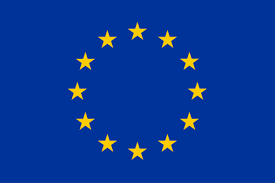BIOFACH 2018
Visit IFOAM EU at our BioFach 2018 stand: 15 – 18 February, Hall 1 (1-451)
Express your opinion and learn more about organic food and farming in the European Union! More details in the timetable below.
For more information visit www.biofach.de

Programme
Both farmers and citizens agree on the need to secure fair farm incomes and address environmental and climate action, but consider that the current CAP addresses these issues to some extent only. Sustainability assessment tools could help EU farm policy in meeting different sustainability goals, expected from the farming today, and potentially boost the development of organic farming in Europe.
GMOs have been grown in few European countries and are largely imported for feed. Because of the high risk of “adventitious presence”, suitable measures are needed to avoid contamination. The cost of such measures is currently borne by the organic sector. FiBL and IFOAM EU will present the main results of the study they conducted to assess the socioeconomic impacts of GMOs on the organic sector.
The policy day will bring together the EU policy makers and the organic sector to discuss the state of the play and the future of the legislative and policy ‘organic’ framework.
Discussion on the role of organic farming in the fight against climate change and specific farming practices that can provide both environmental and socio-economic benefits. The event draws on the experience of the SOLMACC project where organic farmers from Sweden, Germany and Italy have optimised their farming practices to help mitigate and adapt to climate change.
The workshop presents diverse situations regarding organic seed use and policy in EU countries, which has been analysed within the EU funded project LIVESEED. The focus will be on regions where shortcomings have been identified in the organic breeding and seed sector.
Organic Action Plans can help SMEs and the wider agri-food sector to develop in a more holistic way by taking a more coordinated approach to fully utilise different policies to reach common aims.
Updates and debate on how the changes in the organic control system will impact the work of the control bodies and of the operators and how they will impact the international trade. After the adoption of the new organic regulation and of the new regulation on Official Controls for Food and Feed, the organic control system will face important changes.
The Internet of Things (IoT) technology is based on the use of connected devices that allow for an unprecedented level of control and automated decision-making. This session will bring together insights from three case studies conducted within the IoF2020 project.
Consumer habits are shaped by many factors. In a world where we are bombarded with information, how can we expand our outreach, steering consumers towards a preference for sustainably produced food?
More information soon


